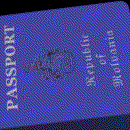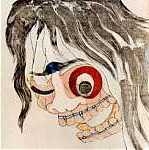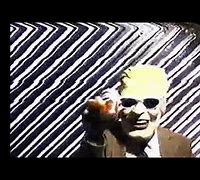| Hot Topics | |
|---|---|
This is your brain on 'Dangerous Drugs'
51 posts
• Page 2 of 2 • 1, 2
Re: This is your brain on 'Dangerous Drugs'
Great. I expect Canadians like myself are now going to get much more thorough bag screening at customs. I am just waiting for the first dumbfark Canuck to step off a plane in Bali, Indonesia with a kilo of dope claiming that it is legal now.
-

dimwit - Maezumo
- Posts: 3827
- Images: 3
- Joined: Tue Jun 01, 2004 11:29 pm
Re: This is your brain on 'Dangerous Drugs'
Taro Toporific wrote:4. Japanese nationals residing in Japan and Japanese tourists should observe these Japanese laws and take sufficient precautions not to purchase/use cannabis (as well as foods and drinks containing cannabis), even outside of Japan.
Chuuuuuugoku mitai!
I wonder if they will actually attempt to arrest/prosecute any J-person (or furriner) for breaking this "Japanese law" outside Japan when they return to Japan. Is "jurisdiction" simply not a component of Japanese law or is this one of those case by case applications of superior, unique Japanese law??
-

matsuki - Posts: 16047
- Joined: Wed Feb 02, 2011 4:29 pm
- Location: All Aisu deserves a good bukkake
Re: This is your brain on 'Dangerous Drugs'
Most reasonable would be to just make everyone, who enters Japan, pee, wait in a lounge for 24 hours for the test results and then be all clear, ready to go. Makes the queues at Narita slightly longer, but safety cuntry first! Even more so in times of Tokyo 2020. And Japanese people love to wait in lines, so for them it would be a treat.
-

Grumpy Gramps - Maezumo
- Posts: 2204
- Joined: Mon Oct 14, 2013 2:22 am
- Location: 地獄の便所
Re: This is your brain on 'Dangerous Drugs'
LOL, I wonder if they will still stick to their guns on all this when the US legalizes it....cause the way things are going, it's not a question of if, but when
-

matsuki - Posts: 16047
- Joined: Wed Feb 02, 2011 4:29 pm
- Location: All Aisu deserves a good bukkake
Re: This is your brain on 'Dangerous Drugs'
matsuki wrote:Chuuuuuugoku mitai!
I wonder if they will actually attempt to arrest/prosecute any J-person (or furriner) for breaking this "Japanese law" outside Japan when they return to Japan. Is "jurisdiction" simply not a component of Japanese law or is this one of those case by case applications of superior, unique Japanese law??
So, you believe that paedophile tourists should not be prosecuted in their home countries?
Like four seasons, this concept is not unique at all. Prosecutorial Remedies and Other Tools to end the Exploitation of Children Today.
For the sake of completeness, China does not have specific laws prosecuting its citizens for acts of child sex tourism committed overseas.
-

wagyl - Maezumo
- Posts: 5950
- Images: 0
- Joined: Thu Mar 17, 2011 11:08 pm
- Location: The Great Plain of the Fourth Instance
Re: This is your brain on 'Dangerous Drugs'
matsuki wrote:LOL, I wonder if they will still stick to their guns on all this when the US legalizes it....cause the way things are going, it's not a question of if, but when
We all know the US will do it when the proper people have their money in the proper places....
Japan has already begun a back door campaign to slowly change the public's view. Mrs. Abe is pushing CBD oil and has promoted changing the law to allow hemp production. Knowing the way Japan works, I don't think she would do anything without LDP approval especially something as edgy as promoting weed products.
-

wuchan - Posts: 2015
- Joined: Tue Jun 17, 2008 11:19 pm
- Location: tied to a chair in a closet at the local koban
Re: This is your brain on 'Dangerous Drugs'
wagyl wrote:matsuki wrote:Chuuuuuugoku mitai!
I wonder if they will actually attempt to arrest/prosecute any J-person (or furriner) for breaking this "Japanese law" outside Japan when they return to Japan. Is "jurisdiction" simply not a component of Japanese law or is this one of those case by case applications of superior, unique Japanese law??
So, you believe that paedophile tourists should not be prosecuted in their home countries?
Like four seasons, this concept is not unique at all. Prosecutorial Remedies and Other Tools to end the Exploitation of Children Today.
For the sake of completeness, China does not have specific laws prosecuting its citizens for acts of child sex tourism committed overseas.
Theoretically, there shouldn't be a need for that....they should be prosecuted in the country they commit the crime. I understand it isn't always the case it's illegal in certain countries or that laws can be circumvented and the heinous level of this shit is why this exists. If Japan tried to apply this, the MOJ age of consent here is 13 so...maybe not the best argument in Japan's favor. That being said, the legalities regarding using pot is quite a different situation that shouldn't have any victims...how far will the J-courts go? Traffic ticket in Japan for making a right turn on a red light in California where it's legal....?
-

matsuki - Posts: 16047
- Joined: Wed Feb 02, 2011 4:29 pm
- Location: All Aisu deserves a good bukkake
Re: This is your brain on 'Dangerous Drugs'
matsuki wrote:wagyl wrote:matsuki wrote:Chuuuuuugoku mitai!
I wonder if they will actually attempt to arrest/prosecute any J-person (or furriner) for breaking this "Japanese law" outside Japan when they return to Japan. Is "jurisdiction" simply not a component of Japanese law or is this one of those case by case applications of superior, unique Japanese law??
So, you believe that paedophile tourists should not be prosecuted in their home countries?
Like four seasons, this concept is not unique at all. Prosecutorial Remedies and Other Tools to end the Exploitation of Children Today.
For the sake of completeness, China does not have specific laws prosecuting its citizens for acts of child sex tourism committed overseas.
Theoretically, there shouldn't be a need for that....they should be prosecuted in the country they commit the crime. I understand it isn't always the case it's illegal in certain countries or that laws can be circumvented and the heinous level of this shit is why this exists. If Japan tried to apply this, the MOJ age of consent here is 13 so...maybe not the best argument in Japan's favor. That being said, the legalities regarding using pot is quite a different situation that shouldn't have any victims...how far will the J-courts go? Traffic ticket in Japan for making a right turn on a red light in California where it's legal....?
The first thing I tell a person that just arrived in Japan is, "check your christian, muslim or jew beliefs at the door. The ten commandments do not apply here."
-

wuchan - Posts: 2015
- Joined: Tue Jun 17, 2008 11:19 pm
- Location: tied to a chair in a closet at the local koban
Re: This is your brain on 'Dangerous Drugs'
Japanese smoking or consuming pot while abroad is roughly the same as American college kids in northern states going to Canada on long-weekends to enjoy the lower drinking age.
•I prefer liberty with danger to peace with slavery.•
-

Mike Oxlong - Posts: 6818
- Joined: Wed Oct 20, 2004 5:47 pm
- Location: 古き良き日本
Re: This is your brain on 'Dangerous Drugs'
matsuki wrote:If Japan tried to apply this
What is this "if" you speak of? Japan also has extraterritoriality of crimes by Japanese nationals involved in child sexual exploitation overseas.
I am fully aware that there is a difference in level of evil we are talking about here. I was merely pointing out that the application of laws relating to offences committed outside a country to the citizens of that country is not at all a unique phenomenon.
It should also be pointed out that differences in level of evil are a completely cultural construct. Once upon a time, witchcraft was a capital offence. Even today, crimes against property are punished to a much more severe extent than crimes against the person. Can you really complain about this Japanese response considering that the United States incarcerates so many people for arguably benign dope crimes? People who live in glass houses shouldn't throw stoners.
-

wagyl - Maezumo
- Posts: 5950
- Images: 0
- Joined: Thu Mar 17, 2011 11:08 pm
- Location: The Great Plain of the Fourth Instance
Re: This is your brain on 'Dangerous Drugs'
“To learn who rules over you, simply find out who you are not allowed to criticize.”
“I know not with what weapons World War III will be fought, but World War IV will be fought with sticks and stones.” ― Albert Einstein
-

Russell - Maezumo
- Posts: 8580
- Images: 1
- Joined: Fri Aug 13, 2010 11:51 pm
Re: This is your brain on 'Dangerous Drugs'
wagyl wrote:matsuki wrote:If Japan tried to apply this
What is this "if" you speak of? Japan also has extraterritoriality of crimes by Japanese nationals involved in child sexual exploitation overseas.
Yuck...I think that answers my question about extraterritorial law application with the creepy low age of consent here. The way that's written, Mr. Tanaka just has to show it wasn't prostitution...they were simply "dating." Very kawaii in rub. Much happy.
wagyl wrote:Can you really complain about this Japanese response considering that the United States incarcerates so many people for arguably benign dope crimes? People who live in glass houses shouldn't throw stoners.
That's kinda my point. Canada legalized it, the US hasn't yet legalized it on the federal level but on the state level...it's going the right direction and the federal level will eventually follow. https://en.wikipedia.org/wiki/Legality_ ... risdiction Japan is....being Japan and sticking by the book that shall not be questioned until it must.
-

matsuki - Posts: 16047
- Joined: Wed Feb 02, 2011 4:29 pm
- Location: All Aisu deserves a good bukkake
Re: This is your brain on 'Dangerous Drugs'
Are they gonna arrest Japanese nationals who got to Thailand to go on a hooker binge for breaking Japanese law? What about the Vegas casino trips? Arrest them for gambling overseas?
•I prefer liberty with danger to peace with slavery.•
-

Mike Oxlong - Posts: 6818
- Joined: Wed Oct 20, 2004 5:47 pm
- Location: 古き良き日本
Re: This is your brain on 'Dangerous Drugs'
Mike Oxlong wrote:Are they gonna arrest Japanese nationals who got to Thailand to go on a hooker binge for breaking Japanese law? What about the Vegas casino trips? Arrest them for gambling overseas?
It could be a new avenue of divorce warfare!
-

matsuki - Posts: 16047
- Joined: Wed Feb 02, 2011 4:29 pm
- Location: All Aisu deserves a good bukkake
Re: This is your brain on 'Dangerous Drugs'
Mike Oxlong wrote:Japan kicks its ‘loophole herb’ drug habitAt a head shop in Tokyo’s bustling Shibuya ward, its shelves strewn with Jamaican flag knick-knacks and bongs bearing marijuana motifs, a clerk swiftly shoots down an inquiry on the availability of “dappo habu,” a previously quasi-legal mix of herbs laced with chemical compounds that pack a narcotic punch.
“The police cracked down on it heavily in recent months,” she says. “It used to be easy to find, but you can’t buy it legally anymore.”
Prior to the crackdown, loophole drugs “were sold in the equivalent of a head shop,” says Brett Bull, founder of Japanese crime news site Tokyo Reporter. “The drugs come in what look like tea packets, and those were on display inside the shops.”
Walking through Tokyo’s red-light district, Bull points to a shop hardly bigger than a stall, tucked away on a quiet side street by a strip club and a hair salon. Dappo herb was once openly sold at the shop, he says, but now the lights are out and it’s empty inside.
In any event, the loophole began to close last July when Japan’s Ministry of Health, Labor and Welfare launched a public-awareness campaign to rebrand dappo herb, a relatively bland term, as “kiken” (“dangerous”) drug. Along with this came a law with real teeth, allowing Tokyo metropolitan police to visit shops known to peddle the stuff — a right previously limited to pharmaceutical inspectors. A subsequent wave of dappo/kiken busts drove the message home.
At the same time, a media blitz portrayed the perils of using dappo. From a man falling off his bicycle while stoned on it last September, to a motorist driving onto a sidewalk in front of Ikebukuro Station in Tokyo last June, killing one pedestrian and injuring seven, notable disasters on dappo have made waves in the national press.
Celebrities are not immune either. In November of 2013, girl supergroup AK48’s manager Tomonobu Togasaki, then 40, was caught on camera toking a pipe packed with dappo herb in the stairwell of a bar-restaurant in Tokyo’s posh Moto Azabu neighborhood. Given AKB48’s squeaky-clean public image, the images whipped up considerable controversy.
Nao Mazaki, Japan’s representative at Foundation for a Drug-Free World, says the synthetic mash-up nature of drugs like dappo make them especially risky.
“You never know what will happen to your mind and body with these kinds of drugs,” Mazaki said. “You cannot compare kiken drugs with other illegal drugs, as there are thousands of products in the ‘kiken drug’ category. But kiken drugs could be much more dangerous than [other] illegal drugs, since no one knows what they contain.”
Law enforcement has targeted establishments hawking dappo with a vengeance in recent months. In December, Tokyo police busted a shop called Heaven for selling just two pouches of kiken drugs for 3,400 yen ($28). And after a larger raid in January, they scored their largest kiken bust to date in late February, seizing 12 kilograms (26.5 pounds) from an alleged dappo-herb producer in Kanagawa.
“Crackdowns in Japan are fairly effective,” says Jake Adelstein, author of “Tokyo Vice” and editor-in-chief of the publication “Japan Subculture Research Center.”
“Once the police have a law and are motivated, they do a good job. For example, human trafficking of foreign women was a serious problem for Japan in 2005-2006. But by 2009, after laws had been put on the books, the trafficking in foreign women significantly declined,” Adelstein says. (Japanese police officials hadn’t responded to a request for comment as of the publishing of this report.)
http://www.marketwatch.com/story/japan- ... 2015-03-29
Thanks for putting the article here Mike - I've cut it down in my reply. I notice Jake Adelstein is used as some kind of source re human trafficking comments in relation to Jp police getting down to biz and meaning it when they do.
Yeah, right Jake. You're the one who wrote about your dramatic encounters with an Aussie prossie who helped you investigate sex slavery among some foreigner groups working as hostesses and who was taken by the yaks to their office in Ebisu and murdered for talking. Remember? Her mouth supposedly was cut off and you recognized her the mole. Of course the yaks showed you a photo of their handiwork that was done in the Ebisu office.
One problem - this Aussie prossie who supposedly had Tokyo Immi fooled by pretending she was working as an English teacher but actually was a full time hostess/escort didn't exist. Jake made it up. Relying on Jake Edelstein as a source is like relying on Hilary Clinton when she 'remembered' running for cover under a hail of bullets at an airport in Eastern Europe somewhere sometime in her political life or her husband's term of office. Hint - it never happened.
Sure there may be less blatant pay offs to the police from the yaks and others who bring in 'entertainers' and some enforcement of laws but last time I looked there are still thousands of foreign women who aint teachers or business women or international students and are doing jobs like working in snacks and places that use their massage skills, private clubs etc.
Japanese Immigration including the tightarsed officers in Immi who like handing out 1 year visas to tax paying foreigners with 4 year degrees and some years of real jobs including teaching, are still handing out 'entertainer' visas for sex workers. And everywhere in Japan including near the local koban are 'businesses' where these gaijin sex workers 'work'. It' s still human trafficking regardless of the spin put on it - what seems to have changed is there's more permission now to bring em in.
Japanese police crackdowns are often for show - and focus on soft targets. Have a friend who works in Shibuya and the police have been noseying around his workplace asking questions about the visas there. He works at a legit business not noted for illegal workers or non qualified people.
He told me he felt like telling the pigs to feck off and go follow the Japanese cunts who regularly speed thru the red lights on Meiji Dori and other main roads right near the Shibuya Station and the said pigs' dwellings. With the pigs just watching as this happens without following the dangerous drivers or just watching when Japnese cunts try to plough thru crowds there in their vehicles.
Like all good little J pigs, these pigs are only interested when a gaijin is doing something and that usually is far less than endangering lives with cuntish speeding through green for pedestrian lights.
- wangta
- Maezumo
- Posts: 475
- Joined: Sat Jan 26, 2013 5:33 pm
Re: This is your brain on 'Dangerous Drugs'
I'm not sure you appreciate the practice and technique - the sheer dedication that goes into mastery of prostate massage. Heroines, doing the Lawd's work!
•I prefer liberty with danger to peace with slavery.•
-

Mike Oxlong - Posts: 6818
- Joined: Wed Oct 20, 2004 5:47 pm
- Location: 古き良き日本
Re: This is your brain on 'Dangerous Drugs'
Japan steps up marijuana warnings following legalization in New York
https://www.japantimes.co.jp/news/2021/ ... a-warning/
https://www.japantimes.co.jp/news/2021/ ... a-warning/
-

Buraku - Maezumo
- Posts: 3919
- Joined: Thu May 13, 2004 9:25 am
Re: This is your brain on 'Dangerous Drugs'
Buraku wrote:Japan steps up marijuana warnings following legalization in New York
https://www.japantimes.co.jp/news/2021/ ... a-warning/
Judging by how arrests for pot possession here are up, I imagine I'll start getting stopped for being gaijin again this year.
-

matsuki - Posts: 16047
- Joined: Wed Feb 02, 2011 4:29 pm
- Location: All Aisu deserves a good bukkake
Re: This is your brain on 'Dangerous Drugs'
Stoner American Broadcast man arrested, Snoopy Daug US Olympic staff arrested for marijuana smuggling
https://news.tv-asahi.co.jp/news_societ ... 27592.html
You don't really find much of this shit to smoke in Japan but in America its everywhere and becoming legal
So How did Japan with no jamaica no hookah afghan type smoke culture, how did the J-cops find him... well its first of all the stuff stinks, once you know the smell its easy and the sight of it....its kinda like being drunk but without the falling around angry happy social drunk buzz, it stays in the system longer, it makes people want to avoid others who are not stoned and the long time effects when your brain totally melts are shit like paranoia
Was sleep walking, with his eyes half closed and a stupid monkey type grin on his face

https://www.shroomery.org/forums/showfl ... r/20000288
https://www.shroomery.org/forums/showfl ... er/4882592
https://www.shroomery.org/forums/showfl ... er/9946338
https://www.shroomery.org/forums/showfl ... er/9140587
Stoners think the Weed gives them a type of 'Wisdom'
https://news.tv-asahi.co.jp/news_societ ... 27592.html
You don't really find much of this shit to smoke in Japan but in America its everywhere and becoming legal
So How did Japan with no jamaica no hookah afghan type smoke culture, how did the J-cops find him... well its first of all the stuff stinks, once you know the smell its easy and the sight of it....its kinda like being drunk but without the falling around angry happy social drunk buzz, it stays in the system longer, it makes people want to avoid others who are not stoned and the long time effects when your brain totally melts are shit like paranoia
Was sleep walking, with his eyes half closed and a stupid monkey type grin on his face

https://www.shroomery.org/forums/showfl ... r/20000288
https://www.shroomery.org/forums/showfl ... er/4882592
https://www.shroomery.org/forums/showfl ... er/9946338
https://www.shroomery.org/forums/showfl ... er/9140587
Stoners think the Weed gives them a type of 'Wisdom'
-

Buraku - Maezumo
- Posts: 3919
- Joined: Thu May 13, 2004 9:25 am
Re: This is your brain on 'Dangerous Drugs'
Nihon Univ. investigates American football team over marijuana allegations
https://mainichi.jp/english/articles/20 ... na/002000c
https://mainichi.jp/english/articles/20 ... na/002000c
-

Buraku - Maezumo
- Posts: 3919
- Joined: Thu May 13, 2004 9:25 am
Re: This is your brain on 'Dangerous Drugs'
I blame Joe Rogan for single handily pimping this 'Pothead' culture stuff around the word
Japan Diet passes bill to legalize cannabis-derived medicines
https://english.kyodonews.net/news/2023 ... cines.html
maybe its genuine and weed pot culture won't spread
those looking for something non-legalization of recreational use...you can phone that Iranian guy but you might be giving money to a gangster Sharia Law idiot
Drugs and Circuses... In context of the Latin ...Narcótico et circenses
Japan Diet passes bill to legalize cannabis-derived medicines
https://english.kyodonews.net/news/2023 ... cines.html
maybe its genuine and weed pot culture won't spread
those looking for something non-legalization of recreational use...you can phone that Iranian guy but you might be giving money to a gangster Sharia Law idiot
Drugs and Circuses... In context of the Latin ...Narcótico et circenses
-

Buraku - Maezumo
- Posts: 3919
- Joined: Thu May 13, 2004 9:25 am
51 posts
• Page 2 of 2 • 1, 2
Who is online
Users browsing this forum: No registered users and 4 guests

